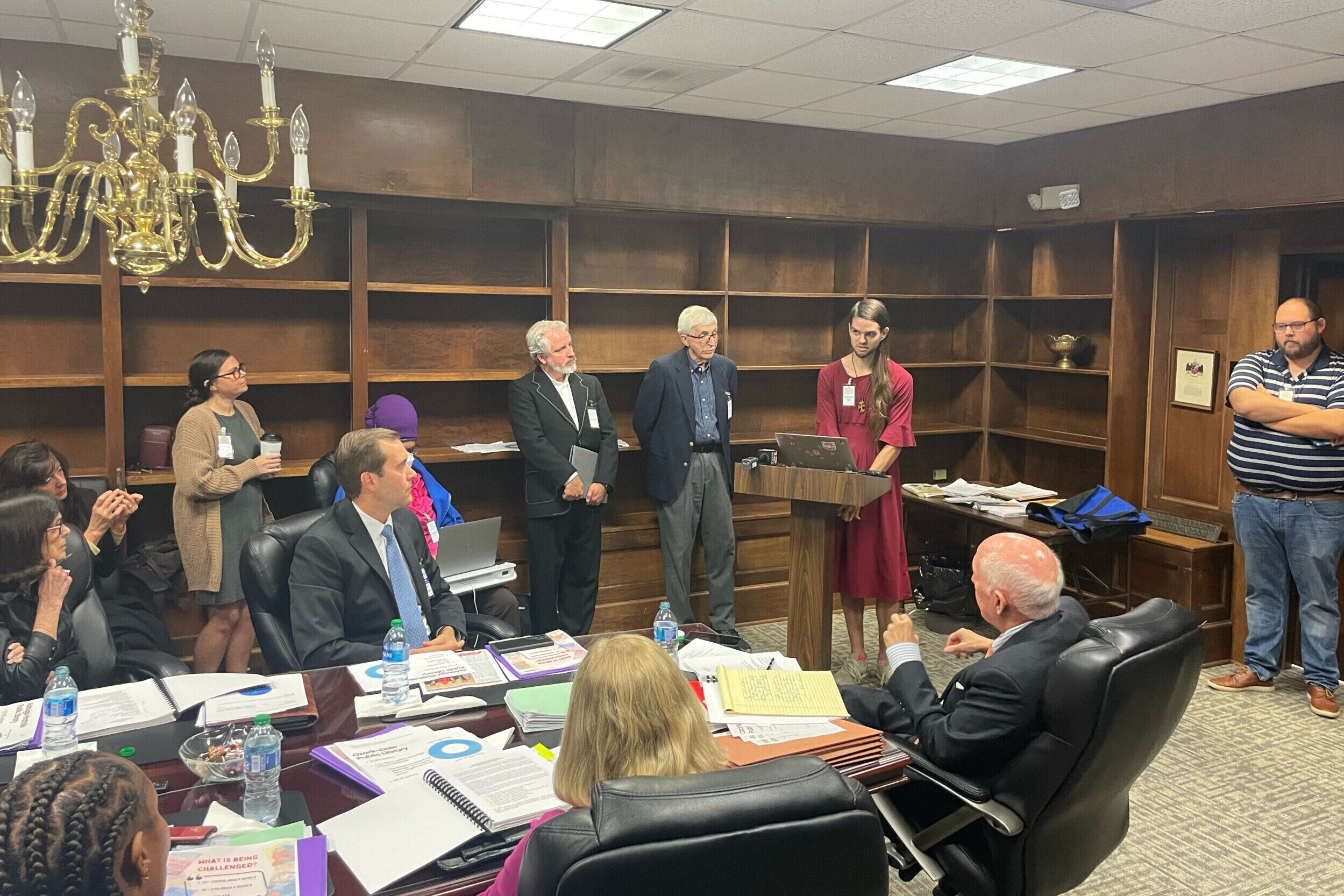MONTGOMERY — The Alabama Public Library Service (APLS) voted to delay the anticipated vote to disassociate the agency from the American Library Association (ALA) on Thursday.
The ALA is at the center of the statewide debate over local libraries' inclusion of sexually explicit books made available for minors. Those opposed to the books’ inclusion have pointed to the ALA’s support for sexually explicit children’s books and the political bias of the ALA and its leadership.
The APLS board met on Thursday in Montgomery to discuss a number of resolutions, the most anticipated of which was ending APLS’s administrative membership with the ALA.
Alabama GOP chairman and Alabama Public Library Service Board member John Wahl announced plans to bring up a motion to vote on not reupping APLS’s membership with the ALA. According to a previous release from APLS director Nancy Pack, the ALA membership cost APLS just over $38,000 since 2019.
In September, Ivey sent a letter to Pack demanding answers in the growing controversy surrounding Alabama libraries and sexually explicit books and APLS's connection with the ALA.
Pack later responded to Ivey's letter, attempting to give answers to the questions, along with a self-authored defense of the ALA.
Ivey later responded by offering a series of policy recommendations. Pack later sent a series of policy recommendations to the board of directors and trustees, in which she said that APLS would remove its membership from ALA.
Despite the recommendations, the board voted to push back the disaffiliation vote until closer to the membership’s expiration in March 2024, after various people made public comments both in support of and opposed to maintaining that state’s relationship with the ALA.
Some board members suggested delaying the vote until APLS received a response from the attorney general’s office on the scope of APLS’s authority in regulating local libraries. Some also wanted to collect more information about the effect disassociation would have on more rural libraries.
The ALA is a national non-profit dedicated to improving library systems through advocacy. The ALA openly promotes diversity, equity and inclusion and seeks to "apply a social justice framework to the ALA strategic directions." It has publically supported the inclusion of books many parents have found sexually inappropriate for minors.
Pack, who attended the meeting via video call due to illness, said she planned to send a letter to ALA president Emily Drabinski to inform her of the negative impacts her previous remarks have had in the discourse surrounding libraries and the ALA.
The board also ironed out details on APLS’s recently adopted policy for collating inappropriate books. The list will be provided to librarians, and any Alabama resident can submit a title for consideration.
After the meeting, Wahl said he was ready to vote in favor of disaffiliation but did not begrudge giving fellow board members more time to decide.
“I think it's smart any time you’re dealing with a question dealing with a state agency, to have all the information,” Wahl said. "I respect my other board members wanting to kind of see how that process would look, how it would affect current involvement, and come back in January for a vote. Which I will be very supportive of separation at that time.”
Some suggested that removing the ALA membership would affect funding for local libraries. According to Wahl, the ALA provides no funding to APLS and is responsible for only providing training and teaching materials to local libraries. Wahl also said he believed teaching and training materials could be developed by the APLS that would “better reflect the people of Alabama.” He also said he thought the Alabama Legislature would provide sufficient funding to accomplish that goal.
“Local libraries are completely separated from the APLS membership in ALA, so it would not actually impact anything that local libraries receive from the ALA, it would only be the interaction with APLS,” Wahl said.
He continued, “I have no concerns over the effect it would have. It would have no effect on local libraries. But it would send a clear message that we want to see things turn more to the state level, and having the state implement policies and training programs instead of a national group that is not as in touch with the people of Alabama.”
To connect with the author of this story or to comment, email craig.monger@1819news.com.
Don't miss out! Subscribe to our newsletter and get our top stories every weekday morning.










